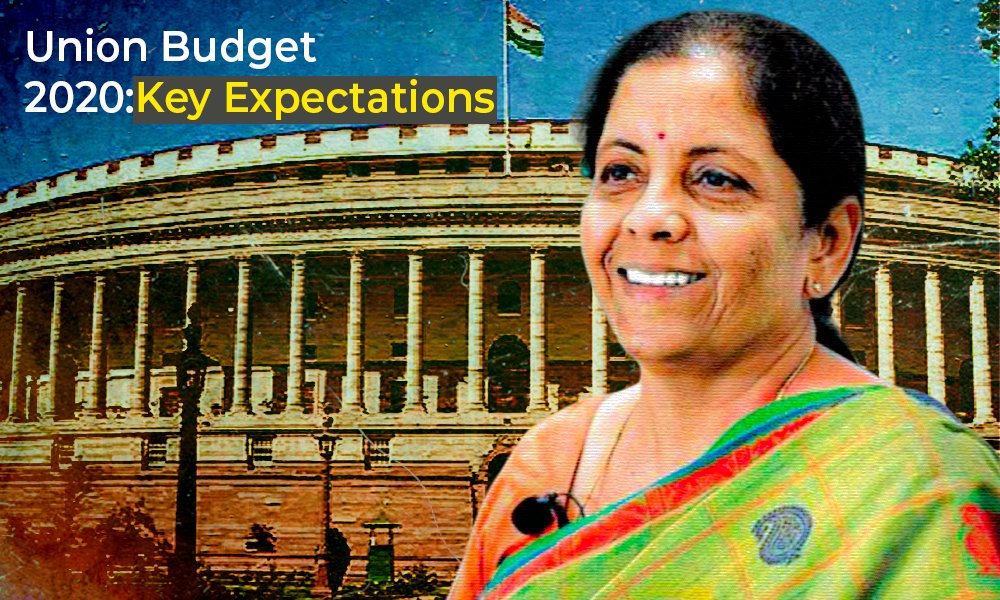Brickwork Ratings on Thursday said that the Union Budget 2020 is a chance to introduce reforms that can revive economic growth and set up a blueprint for achieving the ambitious $5 trillion economy target by 2025.
‘BWR expects Union Budget to provide a boost to investments and savings in the Union Budget 2020-21, to be presented on February 1, 2020, is expected to announce appropriate measures to restore economic growth and to set a clear roadmap for achieving the ambitious $5 trillion economies by 2025’, the rating agency said.
‘Out of certain measures announced recently to revive the economy, the sharp reduction in corporate tax makes India one amongst the low corporate tax rate countries. The reduction in tax rate and lower economic growth impacted government’s tax revenue,’ Brickwork Ratings stated.
The International Monetary Fund (IMF) on January 20, downgraded India’s growth projection to 4.8 per cent for 2019-20. India’s real estate, automobile, construction sectors and overall consumption demand witnessed a sharp and constant decline as the economy faced a slowdown in 2019.
Looking at the international outlook on the Indian economy, should we focus on the ambitious $5 trillion goals? Or focus on realistic approaches that can fix the GDP which is at an 11 year low?
Common Man’s Expectations
The government will reveal its ‘plan of action’ to boost the economy in the Union Budget to be presented on February 1 and is expected to be a product of different quarters of the economy that witnessed the slowdown.
Speaking to The Logical Indian, Nirupama Soundararajan, Author, Head of Research, Pahle India Foundation said: ‘This budget comes at a time when the economy is on the brink of what could be stagflation.’
Nirupama mentioned three things that the government must do primarily, ‘First, it has to layout macroeconomic indicators, especially the fiscal deficit. This is important to assess how much stimulus, if any, can be provided. Second, I would like for the budget to focus on new avenues for growth. We should be focusing on sectors, such as, tourism, social infrastructure, and construction, sectors that have huge potential to generate employment and strong interlinkages. Third, and most importantly, we have to find ways of reviving the financial sector’
She further said that growth will not be possible without a fundamentally strong financial sector, as problems with the banking and non-banking financial sector in the last couple years, has had a significant negative impact on the real economy.
Income Tax Relief Expected
According to media reports, the Finance Minister has hinted at tax cut in the upcoming budget. It is expected that the government may extend the income tax exemption limit from the existing ₹2.5 lakh to ₹5 lakh, and subsequently revise the tax rates for income between ₹5 lakh and ₹10 lakh to 10 per cent from the earlier 20 per cent.
Similarly, a 20 per cent tax rate revision for those earning between ₹10 lakh and ₹20 lakh and 30 per cent for income above ₹20 lakh.
The savings rate in the country has declined in the recent past. According to the 2019 Economic Survey, gross household savings have contracted to 17.2 per cent of GDP in 2017-18 from 23.6 per cent of GDP in 2011-12.
The taxpayers have high hopes from the government to announce some bold initiatives to rationalise the direct tax regime in the upcoming budget and put more money in the hands of the people.
India Inc. has also fuelled expectations from the upcoming budget. India Inc is banking on the budget to see a fall in personal income tax to revive the dropping consumption demand.
‘While rumoured tax breaks will act as a much needed fiscal stimulus, unless and until we set our financial sector right, we will continue to have tough times ahead,’ Nirupama added.
Increasing Demand
‘There can be no ‘expectations’ from this budget as many fundamental problems have to be fixed first before delivering anybody’s expectations,’ Economist Dr Joseph Rasquinha said.
The key to spurring economic growth this financial year is to create higher demand.
The only way to spur demand is to put more money in the hands of individuals. This can be done either by slashing income tax rates, job creation, or easing liquidity conditions.
The Union Budget, therefore, needs to focus more on all three factors to push demand and boost economic growth. The Union Budget should focus on incentives for job creation, including liberalizing FDI.
Reduction In GST On Consumer Durables
Prices of daily use goods are at an all-time high and should be brought down to make them affordable, especially consumer durables and some FMCG products.
There is also an expectation that goods and service tax rates on some of these products would be brought down to boost consumption and the fall in demand in the economy.
‘The GST has already come into play. The government needs to adjust the GST in a way that can help small segment industries which contribute about 200 million jobs today. For this…











